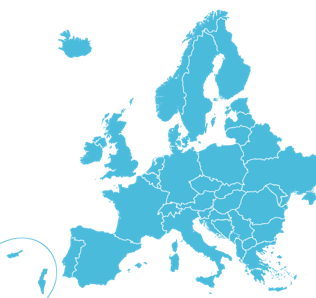





NEW !

STUDENTS (since 2003) - including co-supervision


MSc
Ciptanti Sisbandini
Basavaraj Katageri
Ushpal Thind
Xiaoyan Yang
Fanny d'Estaing
Jeroen Klein Lankhorst
Folkert de Koning
Wouter Dierckx
Bin Sun
Laurence Jennings Vasudevan Lakshminarayanan
Dharani Sundara Rajan
Sitara Vedaraman
Cindhuja Chockalingam
Benjamin Klemm
Aaditya Suratkar
Bianca Vijai Visveshcumar
Alexandra Maier
Srigopal Krishna Dasara
Reshma Shirish Kalvade
Milagros C. Pantin
Ioannis Katris

STATEMENT
My research activities in the field of Functional Soft Matter focus on fundamental aspects of self-assembled, nano-structured (polymer) systems that exhibit a passive function (i.e., transport of hydrogen due to film structure in a fuel cell membrane) or are active systems, that is, they respond strongly, usually mechanically, to external fields. Among the passive self-assembled systems that I study, you will find rigid polyelectrolytes, discotic liquid crystals, organogels, vesicles and block copolymer worm-like micelles. Active & responsive soft systems is the direction that I am mainly focusing on but both research areas are obviously interconnected and I build on my expertise on passive systems to develop and study novel active systems. In this respect, electrostatic interactions and confinement effects play a major role on the behavior of passive systems and can be used as tools for structure formation and tuning of characteristic time response of a given system.
Since Soft Matter responds strongly to external fields, the possibilities for formulating novel active soft systems are enormous. Many different mechanisms or combinations of mechanisms can be addressed such as the alignment of molecules or supramolecular structures with an external field, molecular conformation changes due to absorption of light, volume phase transitions of polyelectrolyte gels, etc. Irrespective of the mechanisms of actuation, I tend to focus on self-assembled systems, i.e. micelles or soft gels, that respond mechanically to external fields. The amplitude of actuation in these systems can, in principle, take place at length scales ranging from hundreds of microns down to nanometers and their understanding paves the way for their possible integration in lab-on-a-chip devices, their use as soft valves and pumps or soft tools to interact with living cells.
In recent years, I focus mostly on responsive biocompatible self-assembled structures in a bio-medical context.
Post-Doc
Artemi Mironov
Plamen Malchev
Hayley Every
Denitza Lambreva
Alexander Korobko
Feng Li
Anika Embrechts
Alexandre Olive
Piotr Glazer
Alexandra Arranja
Qian Liu
BSc
Leen v. der Ham
Cees Willems
Maurice van Erp
Dorette Spaans
Menno Nuijten
Michael Naulais
Jeroen Leuven
Roxanne Goemans
Leo Bergen
Minouk van Oorschot
Marianne Gravendeel
Niels van Welzen



























PhD
Nathalie Fa
Sebastien Viale
Ceren Ozdilek
Zeynep Yildirim
Louise Nobel
Antonia Denkova
Arek Kotlevski
Haining An
Telma Valadas Leitao
Piotr Glazer
Guanglin Wang
Nor Hakimin
Laurence Jennings
Alexandra Arranja
Kai Zhang
Clotilde Bouaoud
Saida El Asjadi
Vasudevan Lakshminarayanan
Hendrik Hubbe
Mengmeng Zhang
Jianan Huang
Advanced Soft Matter




























Places (origin of students)



